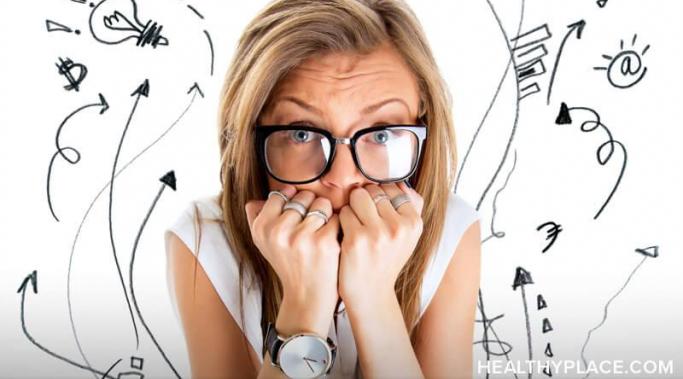I've found exercise can help with anxiety. In my experience, physical activity allows me to release emotions that I am feeling, helps me feel less tense, and helps improve my sleep. Since developing a regular routine, I've noticed my anxiety has been helped by the exercise.
Treating Anxiety
When we experience a stressful situation, we experience a stress response, also known as the fight-flight-or-freeze response. How we respond depends on several factors, but I’ve found that I often freeze in stressful situations. Because of this, I’ve had to learn ways to unfreeze to help me move forward in certain circumstances.
Now, I've learned how to keep my anxiety from hurting others. There was a time when I was a lot younger that I was easily agitated and often angry. What I realized later on in life was that this was related to my anxiety. I often found myself experiencing these intense feelings that I couldn't quite express, and unfortunately, I couldn't quite find an outlet for them either. As a result, I found that I would often express these feelings to others. Things are different for me now, though, as I work to keep my anxiety from affecting others.
I've noticed that slowing down helps my anxiety. When I am extremely busy, the pressures of having a demanding schedule and multiple deadlines begin to weigh on me and contribute to my anxiety. The busier my schedule gets, the more I feel anxious daily. Unfortunately, this becomes evident as I start having a hard time sleeping, concentrating, and focusing on day-to-day responsibilities. In these situations, I need to help my anxiety by slowing down.
I've found that grief and anxiety go together alongside the feelings of sadness, anger, regret, loneliness, and depression. However, in my education and throughout what I have learned, the relationship between grief and anxiety was not usually addressed.
When I'm anxious, one of the hardest things to do is to stop overthinking. After all, this seems to be what anxiety is about, beyond, of course, the physical symptoms. Anxiety causes you to worry about what you are experiencing stress about. Therefore, you end up overthinking about the situation and about various scenarios. It's hard to stop overthinking.
When you are constantly anxious, it is hard to confront traumatic experiences and process your feelings from trauma. What can end up happening as a result is that you may avoid dealing with the situation. However, processing your feelings from trauma is critical.
It's hard to deal with anxiety when you're going through change. Change can feel scary and unpredictable, and even more so when you are already feeling stress and pressure in other areas of life. This is something I have experienced recently. Over the years, this anxiety trigger has been something I have worked hard on learning how to cope with. Years ago, I would find that any time any major life changes occurred, I would feel extremely anxious.
One of the problems I have found when dealing with anxiety is not knowing why I'm anxious. Overall, throughout the years, I've been able to build my resilience to stress, and as a result, I can cope more effectively when I'm experiencing a stressful situation. But, part of the problem with having an anxiety disorder is that, even if you've felt fairly well for quite some time, you can still experience a resurgence of anxiety symptoms. Even during the happiest times in my life, I've had to be aware of anxiety triggers and how they may affect me when I least expect it, even when I don't know why I'm anxious.
I have experienced anxiety and loss. It's been about five years since the loss of my father, and this year, I've been reminded that grief takes its own route and doesn't operate on a schedule -- particularly with regard to anxiety and loss.









